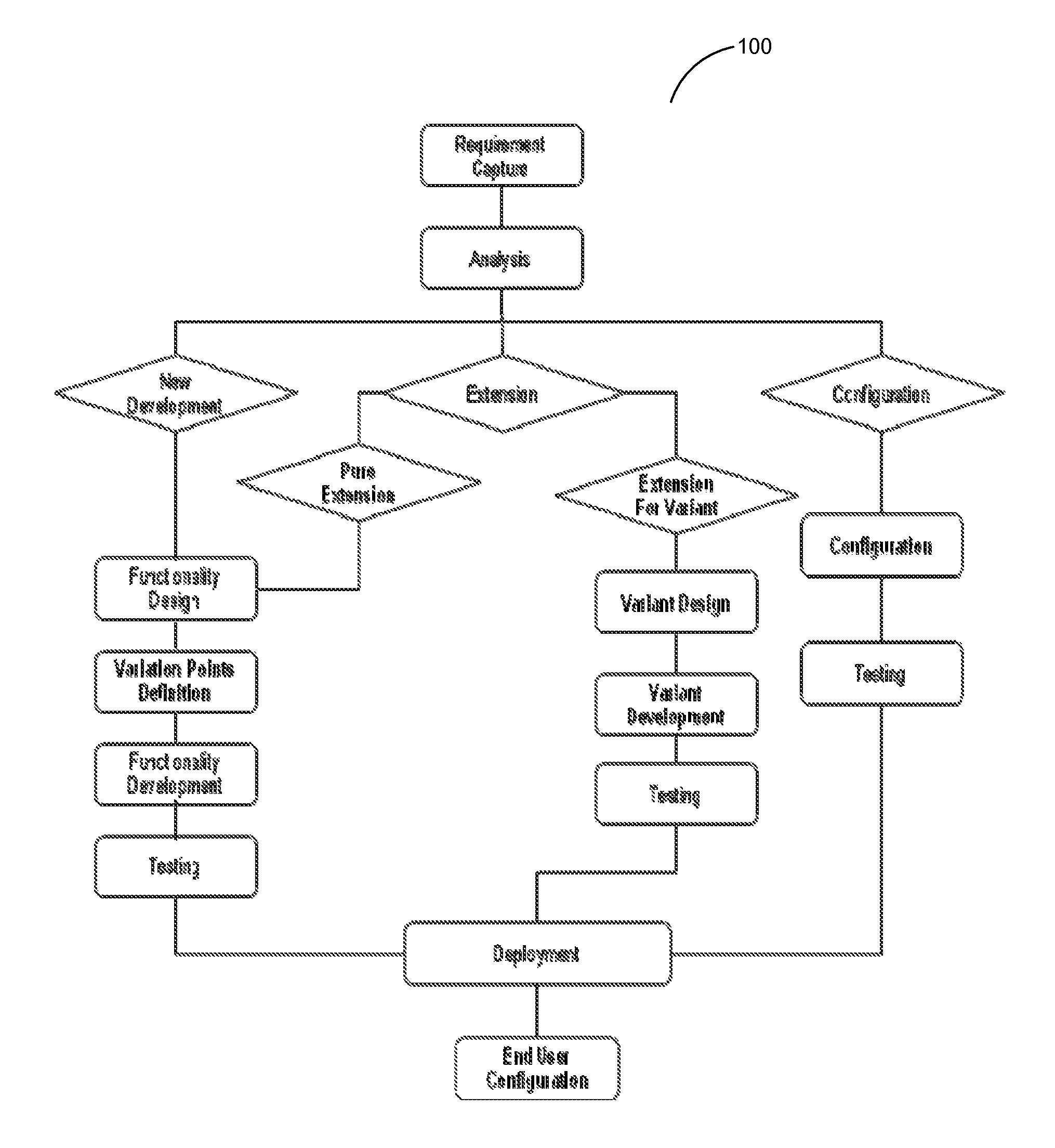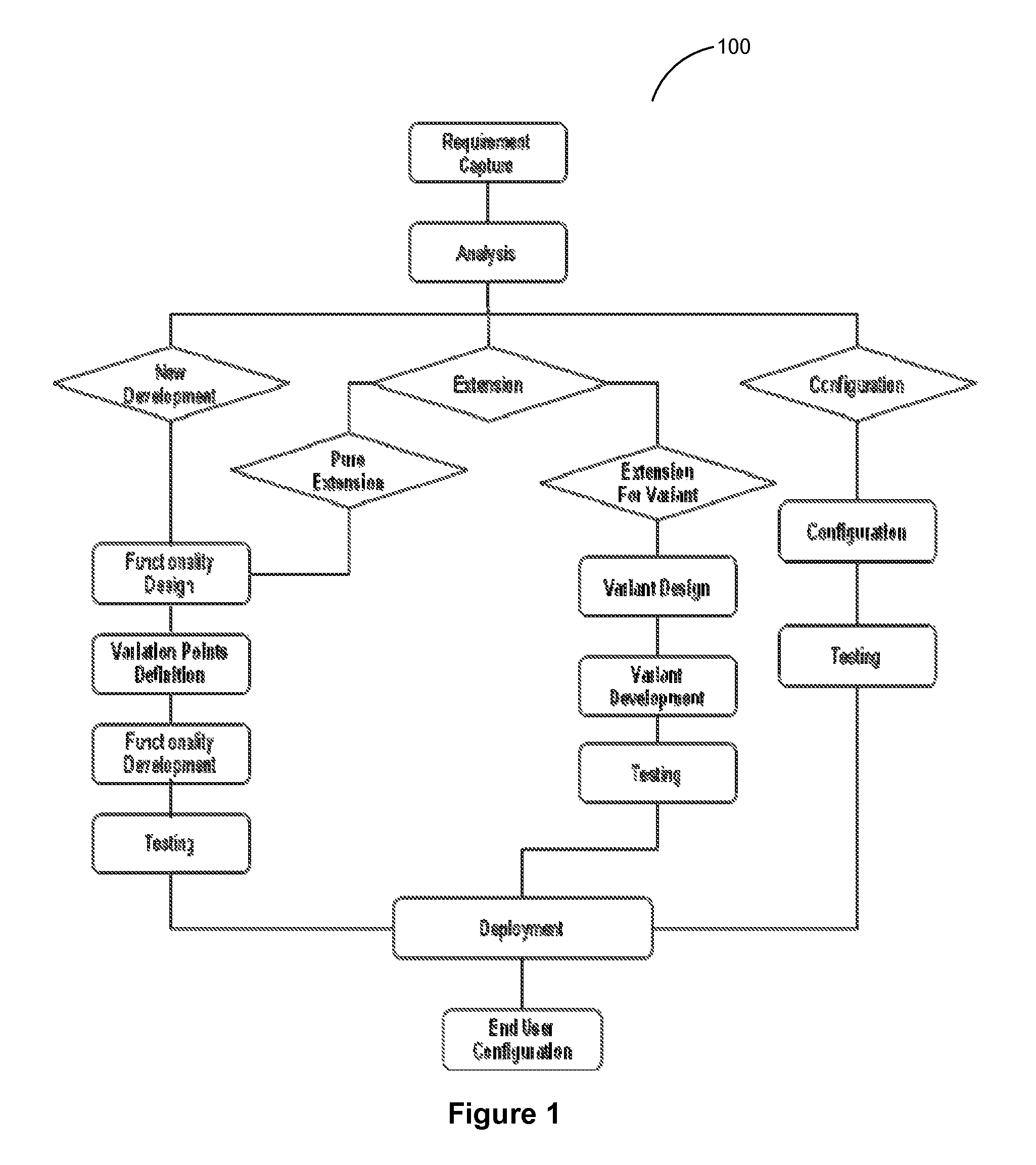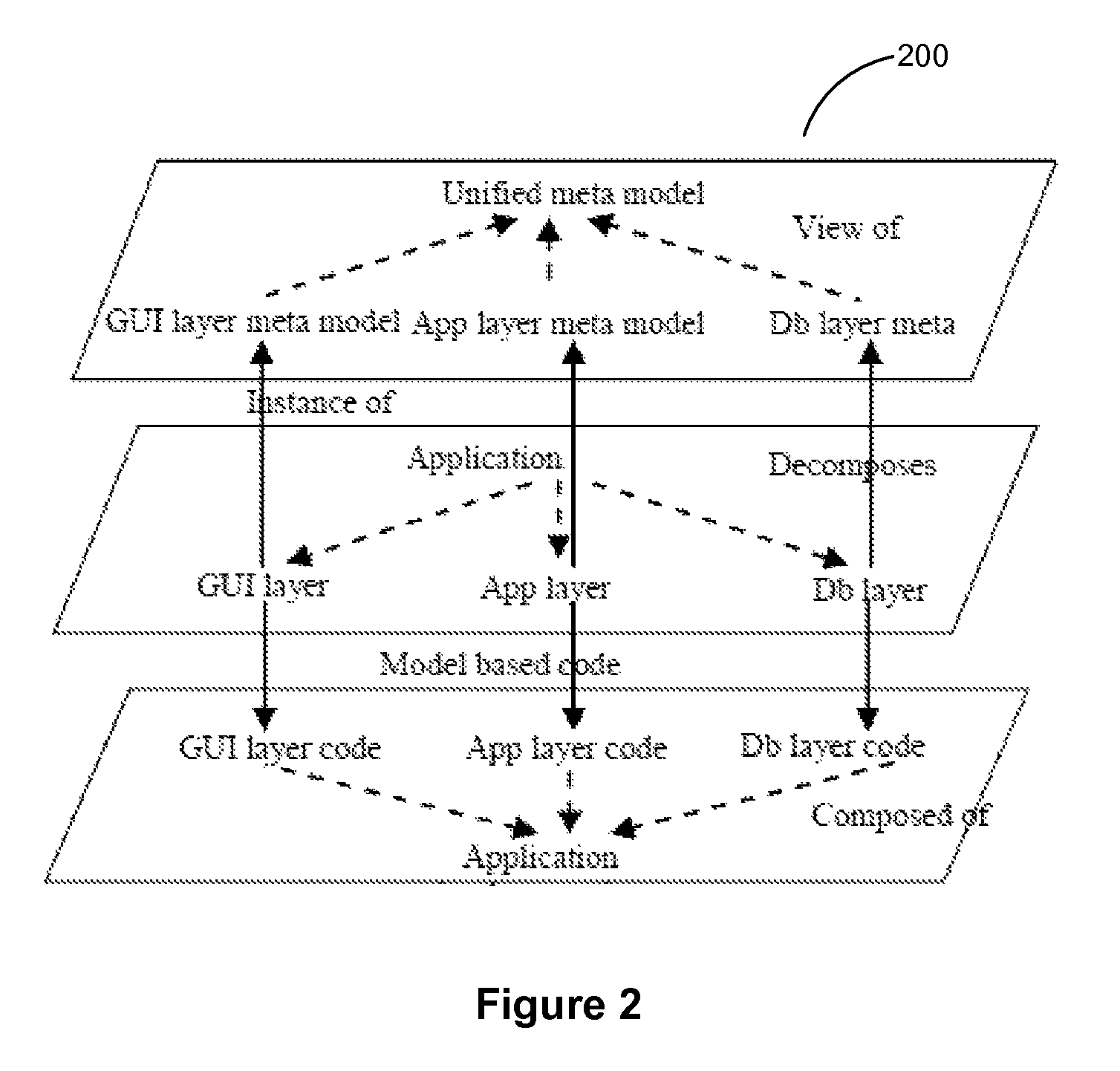Computationally efficient system for developing configurable, extensible business application product lines using model-driven techniques
a business application and model-driven technology, applied in computing, software design, instruments, etc., can solve the problems of unacceptable responsiveness, new opportunities may put unconceived demands on business applications, and hard-coding the operating context in their implementation, so as to reduce the cost and computational time, and address the extensibility and configurability of both structural and behavioral aspects. , the effect of effective maintenan
- Summary
- Abstract
- Description
- Claims
- Application Information
AI Technical Summary
Benefits of technology
Problems solved by technology
Method used
Image
Examples
Embodiment Construction
[0072]Some embodiments of this invention, illustrating all its features, will now be discussed in detail. The words “comprising,”“having,”“containing,” and “including,” and other forms thereof, are intended to be equivalent in meaning and be open ended in that an item or items following any one of these words is not meant to be an exhaustive listing of such item or items, or meant to be limited to only the listed item or items. It must also be noted that as used herein and in the appended claims, the singular forms “a,”“an,” and “the” include plural references unless the context clearly dictates otherwise. Although any methods, and systems similar or equivalent to those described herein can be used in the practice or testing of embodiments of the present invention, the preferred methods, and systems are now described. The disclosed embodiments are merely exemplary of the invention, which may be embodied in various forms.
DEFINITIONS
[0073]Adaptiveness: When business application adapts...
PUM
 Login to View More
Login to View More Abstract
Description
Claims
Application Information
 Login to View More
Login to View More - R&D
- Intellectual Property
- Life Sciences
- Materials
- Tech Scout
- Unparalleled Data Quality
- Higher Quality Content
- 60% Fewer Hallucinations
Browse by: Latest US Patents, China's latest patents, Technical Efficacy Thesaurus, Application Domain, Technology Topic, Popular Technical Reports.
© 2025 PatSnap. All rights reserved.Legal|Privacy policy|Modern Slavery Act Transparency Statement|Sitemap|About US| Contact US: help@patsnap.com



